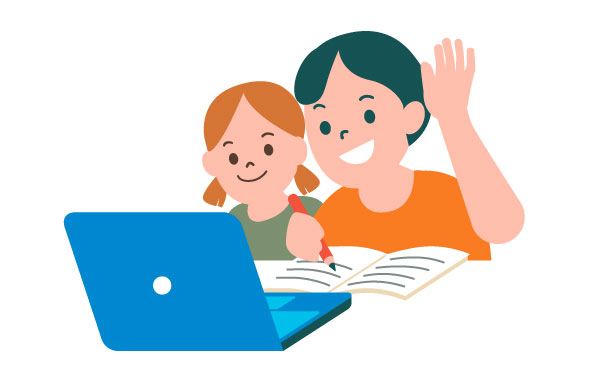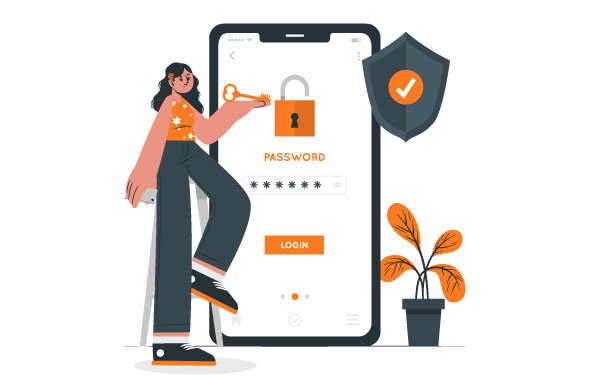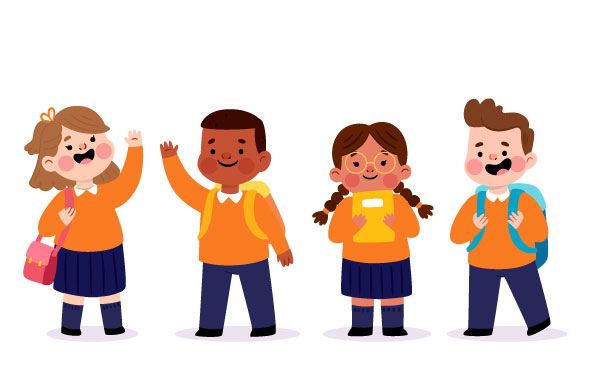Parental Controls and Children Website Content Moderation

UPDATED June 16, 2023
Written By Stephanie Walker
The internet is open to everyone. However, amidst the allure and excitement, it is important to recognize that not every corner of the online world is a safe haven for everyone, especially when it comes to young internet users.
Just as we teach children to look both ways before crossing a busy street, there is a responsibility to educate and guide them on safe practices while venturing through the virtual world.
Content moderators have a major role in creating a safe environment for all the users in an online community. Yet, the task of children website content moderation cannot rest solely on the shoulders of these dedicated professionals. Parents and educators serve as vital partners in the content moderation process, working in tandem to create a nurturing digital environment for children.
Understanding Children Website Content Moderation

What is Children Website Content Moderation?
Children website content moderation services follow the principles of online content moderation–content filtering and monitoring user-generated content (UGC) according to an established set of rules and guidelines. In this case, the moderation is focused on websites that cater to children.
Children are vulnerable to many things, particularly on the internet where information travels fast and where malicious individuals lurk.
Content moderators form an essential line of defense, diligently monitoring and filtering user-generated content to prevent the infiltration of harmful material. Their tireless efforts help maintain the integrity of online communities and shield users, including children, from encountering age-inappropriate content, cyberbullying, or other potential hazards.
Challenges and Risks Associated with Inappropriate Content
A young brain is fickle and absorbs information like a sponge. What children learn in their early years can effect how they develop in the future. It’s due to this reason that children website moderation services are sorely needed.
Inappropriate content can hinder children's healthy development. It may introduce them to concepts, behaviors, or language beyond their cognitive and emotional capacity, potentially distorting their perception of reality and impacting their moral and social understanding.
Pornography, for example, exposes them to various sexual acts; it’s not just inappropriate, it’s also against the law. It also shows them an unhealthy depiction of sex that may carry on through adulthood.
Profanity colors their language, and not in a good way. It can affect their manners and their way of interacting with their peers.
Addressing these challenges and mitigating the risks requires a comprehensive approach involving content moderation, parental guidance, education, and technological solutions. Collaborative efforts between stakeholders are essential to create a safer digital environment for children, where inappropriate content is minimized, and their online experiences are nurtured, protected, and conducive to their healthy growth and development.
Legal and Ethical Considerations in Content Moderation
Content moderation for children websites is not just a business decision, it’s a matter of the law. Websites have to comply with several laws that protect children’s online safety like the Children’s Online Privacy Protection Act (COPPA).
However, part of the challenge in moderating is balancing between freedom of expression and child protection, especially for sites that cater to both children and adults. On one hand, you don’t want to remove too much that the adults lose interest. On the other hand, you need to comply with several laws and uphold online safety for children.
Talk to our team!
Send Me a Quote
The Role of Parents in Children's Online Safety

Parental Responsibility in Guiding Children's Online Behavior
The parents or guardians provide the first line of defense in children’s internet safety. Before letting a child use a device, parents and guardians should educate the child first on the dangers of the internet.
First, they should define what is and what is not appropriate in online interactions. Tell them why they should not reveal their identity and guide them to a child-safe community where they can interact with people their age.
Child-proof the device that you’re handing off. Install age-appropriate content or apps and make sure that they wouldn’t stumble upon inappropriate content.
Establish household rules for internet use and explain the reason behind these rules to help them understand the online risks for children. It also prevents them from breaking these rules on a whim.
Importance of Open Communication and Trust
Being a parent is challenging. You have a major role in how the child turns out. Effective communication is a must to effectively guide your child to the right path.
Be a safe space for your child so that they have someone to open up to when they need to discuss any concerns or encounters with inappropriate content. Getting early guidance and an explanation is better than carrying a wrong misconception throughout adulthood.
This openness maintains a close parent-child relationship and at the same time protects your child from people that might take advantage of their naivety.
Empowering Parents Through Knowledge and Awareness
Being old or of an older generation is not an excuse to neglect your child’s safety. Be proactive by staying informed about the latest trends in technology and any available parental control tools.
Explore your device and familiarize yourself with its tools and functions. You can even subscribe to sites such as TechCrunch and Wired to get updates on current social and technological trends.
Key Features and Benefits of Parental Control Tools

-
Popular Parental Control Tools and Software
Verbal rules sometimes aren’t enough to deter your child from accessing inappropriate content. In this situation, parents can employ the aid of parental control tools and software to monitor their child’s online footsteps.
Here are some of the popular parental control tools that you can use:
Norton family is a product from the antivirus vendor of the same name. This parental control suite can be installed on unlimited devices and support Windows PCs, Android, and IOS.
Some of its notable features besides Web Supervision are School Time and Search Supervision. School Time limits the web content to educational content, which is very helpful for home-schooling purposes. Search Supervision, as the name suggests, monitors the child’s searching activities for anything inappropriate.
It’s has a 30-day free trial and the subscription fee is $14.99 annually.
Mobicip is another popular app among parental controls. Some of its notable features are its Family Locator and Collaboration. Family locator allows the parent to create geo-fences that check where their child is located. Meanwhile, Collaboration is basically an advice section where parents can share parenting duties with trusted partners or guardians.
It has a 7-day free trial for each pricing plan. As for the subscription fee, the Lite version is $2.99 per month, the standard is $4.99 per month, and the premium is $7.99 per month. The subscription supports up to five, 10, and 20 devices respectively.
Some of Net Nanny’s notable features are YouTube Monitoring and Parent Dashboard. Net Nanny’s YouTube monitoring is especially dedicated to monitoring the videos that their kids watch. Parent Dashboard gives an overview of all the app’s major features and also shows the children’s current locations.
Unlike other parental control suites, Net Nanny has no free trial and its annual subscription fee is based on the number of devices. The subscription for a single desktop is $39.99, $54.99 for five devices, and $89.99 for 20 devices.
Filtering and Blocking Inappropriate Content
When picking out a parental control tool, look for the list of functions. Look for tools that contain filters and blocking features that work on different sites or apps.
Typically, paid subscriptions tend to have more available tools, but there are free versions that can serve your needs just as well.
Time Management and Screen Time Limitations
Promote positive digital habits while your child is young. Too much screen time can damage your child’s eyesight and may also distract them from doing more productive activities that are beneficial for their development.
Parental control tools usually have a time management function that can helps limit your child’s screen time. Turn the feature on during school hours or study time to avoid distractions.
Tracking and Monitoring Online Activities
Parental control tools offer tracking and monitoring features that allow parents to keep an eye on their children's online activities either through the app or through email.
It is crucial to acknowledge that utilizing trackers for monitoring your child's online activities can be perceived as an invasion of their privacy. It is advisable to approach this situation with transparency and open communication, engaging in an honest conversation with your child regarding the purpose and necessity of employing such monitoring tools.
Effective Implementation of Parental Controls
Collaboration Between Parents, Educators, and Online Platforms
Creating a positive online environment for children is a collaborative effort. Parents, educators, and online platforms have their own roles and responsibility in upholding that safety.
Parents bear the primary responsibility for safeguarding their child's well-being within the home environment, while educators play a crucial role in promoting a secure learning environment at school. Online platforms, on the other hand, have a significant part to play in upholding safety measures within their digital spaces.
Any of the three can further contribute to the moderation process by sharing tips and experiences through online blogs or knowledge bases. That way, all the parties can be aware of useful information and things that need improvement.
The Role of Online Platforms in Implementing Content Moderation Policies
Online platforms have a duty to provide space for users to express themselves as well as provide protection against malicious entities.
Online platforms should have established rules and guidelines for users to follow. That’s the first content filter for any website or online community. They must also have some form of content moderation tools to watch out for those that don’t follow the established rules and regulations.
Educating Children About Responsible Digital Citizenship
Educate your child about how to be a responsible digital citizen. Teach them about online etiquette or “netiquette” to help them with interactions across the different online and social landscapes.
Encourage critical thinking skills when interacting over the internet. Carefully read what the sender says and try to discern whether they are good-intentioned or not.
Another thing you can do is to collaborate with your child’s educators and provide relevant talks and seminars.
Potential Limitations and Challenges

Technological Limitations of Parental Control Tools
We may be in a golden age of technology, but that doesn’t make the current technology perfect. You need to be aware of false positive and false negative results.
Despite the availability of parental control tools, it is important to acknowledge that their effectiveness can be limited, even with a paid subscription. It is essential to recognize that these tools are not foolproof, and there may be instances where inappropriate content manages to bypass the filters in place.
While parental control tools aim to provide an additional layer of protection, they cannot guarantee complete elimination of all potentially harmful or inappropriate content. The dynamic nature of online platforms, the constant evolution of digital content, and the ingenuity of those who seek to circumvent restrictions make it challenging to create foolproof filtering systems.
Your child may even find a way how to bypass these tools and filters. While it’s a testament of their cleverness and imagination, it comes at the expense of their online safety.
Over-Reliance on Technology and the Importance of Human Supervision
It’s not recommended to solely rely on parental control tools to monitor your children’s online activity. There should be a human-based approach that adds the necessary context and intuition to identify potential risks or instances where technology may fall short.
By staying actively involved in their children's online lives, parents can better understand their digital experiences, identify warning signs, and provide guidance as needed. This proactive involvement fosters a collaborative environment where children feel supported, educated, and empowered to make responsible choices online.
Evolving Nature of Online Content and the Need for Continuous Updates
We live in a fast-paced world where interests can come and go in the blink of an eye. Online content is constantly evolving and new platforms and tools emerge regularly. Staying updated and adapting to trends and technical changes is a big step in ensuring your child’s safety.
Striking a Balance: Promoting Healthy Online Habits

Encouraging a Balanced Approach to Screen Time
Encourage your child to adopt hobbies outside of the digital world like reading, drawing, and even gardening. Don’t let an over-reliance on technology for entertainment take root.
To help enforce a more balanced screen time, try creating a schedule and a reward-based system. If you can, try disconnecting on weekends and spend time doing fun non-digital activities with your child.
Fostering Critical Thinking and Media Literacy Skills
Teach your child early on that not everything on the internet is to be believed. Be open to their questions and show them how to research for credible information. Show them the red flags to look out for and tell them to report it to you if they ever encounter these.
When they encounter inappropriate content, stay calm and assess the situation. Find out how they came upon it and if someone showed it to them so that you’ll know who and what to look out for. Afterwards, explain why the content is inappropriate for children. It’s best to be open about it in a safe environment than letting the child go on with a misconception or have the wrong person give the explanation.
Impact of Children Website Content Moderation on Mental Well-being

Psychological Effects of Exposure to Inappropriate Content
Discuss the potential negative psychological effects of children's exposure to inappropriate content online. Highlight the importance of protecting children from harmful material and how content moderation plays a vital role in reducing these online risks.
Children are prone to repeat what they see and learn. It’s in the nature of human development. This is a major reason why positive influences are encouraged during a child’s early years.
As helpful as technology is in providing accessible information, not all of it is beneficial. It may even cause some lasting harm to a child’s psyche.
Here are some of the ways inappropriate material negatively impacts children:
-
Sex Misconceptions and Addiction
Pornography shows an unrealistic view of sex. They might become curious and, without proper guidance, try to engage in sexual acts early on. At worse, the curiosity might develop into fascination and then addiction–tainting their view and attitude towards sex and relationships in general.
-
Internet Addiction
Continuous use of the internet at an early age can develop into an over-reliance. It becomes a source of stimuli and serotonin that starts to negatively affect their life. They might develop unhealthy sleeping habits, damaged eyesight, and health problems.
-
Violent Tendencies
A child may try to copy violent behaviors, especially when such behavior is glamorized. The latter can result in a distorted way of thinking that violence is a must-have trait, a mindset that might follow them to adulthood.
The Role of Content Moderation in Reducing Risks of Cyberbullying
Cyberbullying is the use of the channels afforded by the internet to harass another person. Without content moderation, some children may become the target of cyberbullying.
Moderation nips the situation in the bud and prevents any chances of other people dogpiling on the victim. The content moderator can send a warning to the sender, inform the proper authority, or ban the user altogether.
Promoting a Positive Online Environment for Children
Online platforms can help promote a safer environment for children by adding reporting mechanisms and maintaining a supportive community. This helps moderators apprehend what the filters may have missed and creates a more collaborative form of online moderation.
The Future of Children Website Content Moderation
Emerging Technologies and Advancements in Content Moderation
In the future, the artificial intelligence (AI) used for moderating may become more advanced. The technology may now be able to accurately discern context, leading to less instances of false results.
Developers may also create streamlined databases that contain banned keywords or content. It can help refine filters and makes it easier for content moderators to update its content.
Another thing to look out for will be the future advancement in moderating other file types. Malicious people tend to bypass filters by hiding inappropriate content in different UGC formats. The future might see a more refined version of the following services:
The implications of this transformative approach are staggering. By embarking on this revolutionary path, we unlock the true potential of internet safety, casting a wide net of vigilance and scrutiny over a vast array of multimedia formats. No longer confined to the limitations of text moderation, moderators will be able to more meticulously analyzing images, videos, audio files, and more.
Your Ally in Children’s Online Safety
Content moderation is a must in our digitally-focused society. As the user base expands exponentially, encompassing an ever-younger demographic with each passing year, the responsibility entrusted upon moderators surges to new heights. This compels them to navigate the wide expanse of content production with unwavering dexterity.
With younger users, moderation becomes a collaborative effort between parents, guardians, educators, and online platforms. Each party has a role in helping maintain a safe online environment for children.
By fostering a safe online experience, we sow the seeds of wholesome digital habits, nurturing the growth of digital citizenship and resilience. The combined effort creates formidable barriers that shield the children from the perils that may lurk, both physical and psychological.
Part of ensuring a safe online environment is finding the right content moderation company to partner with. Elevate the benchmark of excellence in ensuring children's online safety by forging a powerful alliance with Chekkee Content Moderation Services. Encourage child-friendly content and let nothing slip through the cracks with the combined power of our experienced content moderators.
We have a variety of content moderation solutions that you can customize according to your business needs. Every keystroke, every click, and every interaction is meticulously scrutinized and safeguarded, empowering children to explore, learn, and thrive in a virtual environment that champions their well-being above all.
Let us redefine the boundaries of children's online safety. Contact us!